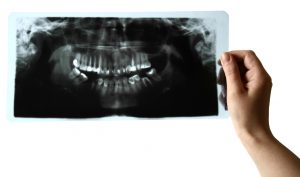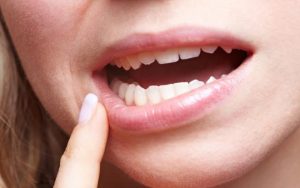We conclude our series on common dental allergies with a brief look at two medications that are frequently prescribed to patients – penicillin and codeine.
Penicillin
An allergy to penicillin is very common…it includes 10 % of all people. It is possible to become ‘less’ allergic to it as time goes by; in fact, many people who think they are allergic to Penicillin can take it. Either they were never allergic to it or it resolved itself. Penicillin is the most commonly prescribed antibiotic. It belongs to a whole family of antibiotics: an allergy to one usually means an allergy to all…so it’s best to avoid the entire group.
Since the Penicillin group is the most common group to be allergic to, it is also possible to have cross reactivity to other related antibiotics…most often the Cephalosporins. Aside from having an allergic reaction to a substance, it is also possible to have an ‘undesirable’ reaction to one as well. These are much more common. I.e. an upset stomach and diarrhea are considered undesirable reactions.
It is best to not confuse these ‘side effects’ with a true allergy because then you may avoid this whole group and use an antibiotic that’s less effective. True allergic reactions can range from a rash (hives) to a full blown anaphylactic reaction I.e. low blood pressure, difficulty breathing, and stomach pains, swelling in the throat or tongue and/or diarrhea and vomiting…Please review blog “Anaphylaxis” posted on October 7, 2013.
Codeine: Facts
-Is a narcotic with pain-relieving qualities.
-Is generally used for mild to moderate pain after dental surgery.
-Is effective for dental pain when given along with acetaminophen.
-Comes in different strengths: 8, 15, 30, and 60 mg’s I.e. Tylenol 3 contains 300 mgs of acetaminophen and 30 mgs of codeine.
-Usually given for a limited amount of time; usually less than 5 days.
-And other related narcotics cause many side effects (undesirable reactions), such as dizziness, drowsiness, nausea, vomiting and constipation.
-Can enhance the effect of other medications when taken at the same time, such as codeine and sleep medication – you will sleep longer than the desired effect of just the sleep medication alone.
-Enhances the effect of alcohol too. It increases the risk of drowsiness, impaired thinking and unconsciousness.
-Should not be prescribed to someone with a history of narcotic drug abuse.
-Should not be prescribed to a nursing mother as the codeine gets passed on to the baby and can result in death…This has actually occurred.
Allergy Implications
If you are allergic to acetaminophen, then you should not take Tylenol with codeine. And if allergic to aspirin, you should not take aspirin and codeine together. As with the Penicillin group, allergic reactions can range from a rash to a life threatening situation I.e. closure of the airway and a fall in blood pressure.
There you have it.
In the past four blogs, we have reviewed some of the more common dental allergies. Because of the extreme range of side effects that may occur, it is important for you to be as thorough as possible when filling out your medical history…until next time.
Dr. F. Keshavarz Dentistry






